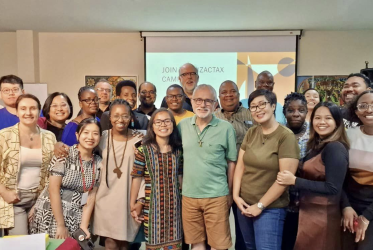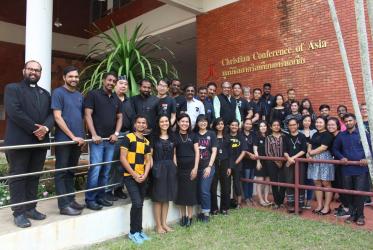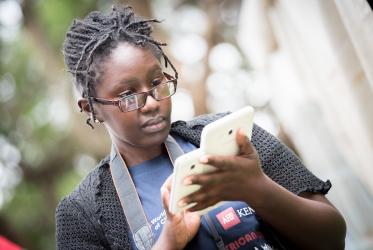Displaying 1 - 20 of 49
GEM School explores how to make new economic world order a reality
08 September 2023
WCC Eco-School for Europe and North America region
11 - 18 November 2023
Orthodox Academy of Crete, Greece
WCC Eco School for North America postponed until 2023
14 November 2022
Climate crisis fuels existing water injustice
27 October 2021
Ecumenical young trailblazers
15 August 2019
















